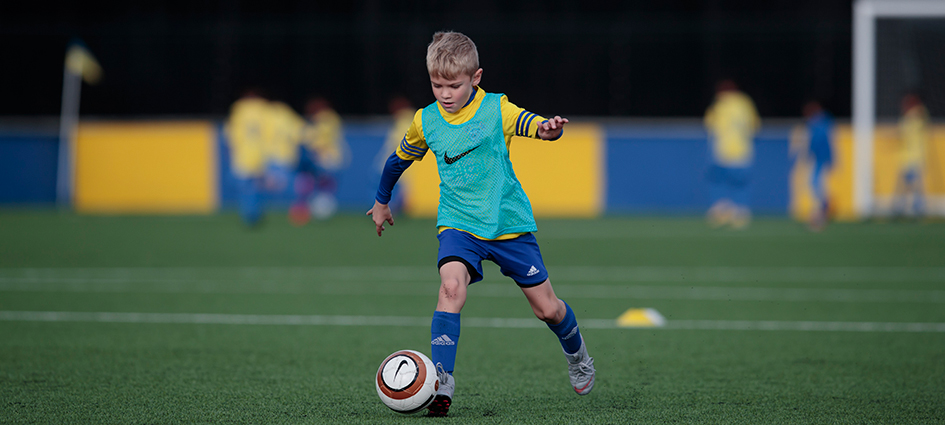GUIDES

Movement capability and the England DNA
- The Boot Room
- 20 November 2019
To help long-term development, it’s important for players to really master their movement skills in the Foundation Phase, something that can be done by using a playful approach.
The Foundation Phase offers a great chance for coaches to prepare players for their journey in the game, after all, this is where they have to be given the time to develop all the essential skills they need to progress.And for Nick Cox, former Sheffield United academy manager, the opportunity to develop young players’ movement skills between the ages of 5-11 is one that simply can’t be overlooked.
“If we miss a window of opportunity at a certain age, we could be in big trouble later along the journey – for example, at age 9, things like ball mastery and physical literacy need to happen,” explained Cox.
Cox, who is now with Manchester United and is recognised as one of the country’s most forward-thinking academy heads, was discussing the Yorkshire club’s emphasis on using playful activities to help players in the Foundation Phase develop their agility, balance, coordination and speed, stressing: “We can’t pump that into kids at 16, so we better deal with that now.”
A lack of appropriate movement skills in young players is a concern at all levels of the game. Many suggest this is due to a lack of opportunities for children to play in informal settings. No longer are games like ‘tag’ – which brought great physical returns for young children - seen on playgrounds and street corners. It’s a concern shared by FA county coach developer Rebecca Garlick.
“During my career as a coach, whether it has been in football or when coaching multi-skills, the one thing that has never failed to surprise me is how many young people in society lack the basic movement skills that are crucial for their participation in sport” wrote Garlick in a blog on The FA Licensed Coaches’ Club website.
“As coaches, we need to recognise the needs of our players, and if that means going back to basics in terms of building fundamental movements before we can even begin to look at football-specific ones, this will surely have a more positive impact on young players’ long-term development,” she added.

Whether to prioritise efficient fundamental movements before ball contacts with young players is an interesting debate. It’s one which former FA player development coach, Paul Holder, considered in his article Strictly Ballwork, which was published in The FA’s Insight journal in 2010.
“Traditionally technique development has revolved around repeating the point of contact on the ball, starting with no, little or restricted movement. This is still valid for those that need it, and cannot and should not be dismissed, but we really need to see technique as movement or movements, and good movement needs to be seen as essential to good technique” wrote Holder.
The point is, that for players to progress in the game – either at grassroots or professional level – individuals must have a mastery of agility, balance, coordination and speed as a base foundation in order to begin to provide the football responses to the game’s many varied demands.
Try and break down all the movement components needed to move into position and strike a volley from a diagonal ball and you will see how complex this can be for a young player.
“If players suffer with their technique, we may be tempted to go back to basics and this, more than likely, leads to a practice without movement and a focus on the point of contact. This could be a glaring error. Players can only execute effective techniques in a game if they have good agility, balance, coordination and speed (ABC’s),” added Holder.
“Striking a stationary ball might be different, but hitting that sweet spot on a ball that is shifting all over the place and at different speeds requires players to move efficiently, quickly and instinctively. I would replace ‘going back to basics’ with ‘go back to fundamentals’ (ABC’s) as it may have a completely different effect.”
It doesn’t look like a sports science programme, it looks like play
What is not being proposed here is a return to military-style drill-like movement sessions or gym routines for Foundation Phase players. Instead there is an enthusiasm to recreate some of the informal play-like activities enjoyed by previous generations which helped build these fundamental skills.
The unique aspect of Sheffield United’s approach is that the methods being adopted to improve young players’ movement skills are child-like and age-appropriate. In short, they involve play.
“What we’ve tried to do is devise a movement skills programme which is multi-sports, play-like and creative,” explained Cox. “We encourage playground activities like wrestling, play-fighting and chasing. It’s built around everything that helps kids learn how to use their body. It doesn’t look like a sports science programme, it looks like play,” he added.
The England DNA demands that players possess a high level of skill and decision-making. The importance of a creative, robust and adaptable movement capability must not be forgotten. The exciting thing is that all of these things are right for development during the Foundation Phase.
To learn more about Foundation Phase DNA, click here.








